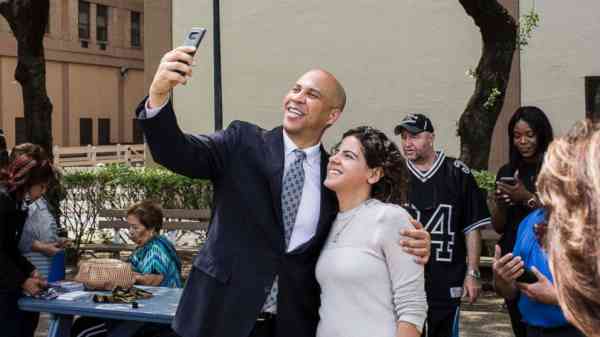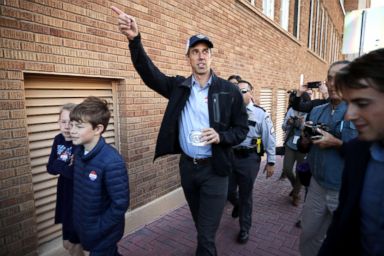
The next presidential election is still nearly two years away, but already potential Oval Office hopefuls are going to painstaking lengths to hone and personalize their social media personas ahead of a long and arduous campaign.
Massachusetts Sen. Elizabeth Warren, the first major candidate to take significant steps toward a 2020 presidential run, announced the formation of her presidential exploratory committee with both a sleekly-produced video posted on social media and in an extended video posted on her Instagram story, in which she enjoys a Michelob Ultra — which she refers to as the “club soda of beers” — with her husband Bruce.
Former Texas Congressman Beto O’Rourke drew a wide variety of reactions when he posted a video on his Instagram story during a visit to his dentist, in which he interviewed a dental hygienist about her experience living near the U.S.-Mexico border.
O’Rourke, who has been mum on a potential 2020 run following his loss to Texas GOP Sen. Ted Cruz last year, generated a massive following on social media throughout his campaign and utilized livestreams of himself across the state during the campaign as a way to speak directly to his engaged and passionate supporters around the country, a strategy he would likely repeat in a presidential bid.
California Sen. Kamala Harris, another possible 2020 contender, is highly active on social media and has been quick to respond to President Trump’s frequent musings on Twitter.
Social media is poised to occupy a larger section of the political conversation than any other campaign in American political history, but the effect and possible downsides of the trend are hard to quantify at such an early stage in the race.
(MORE: Books, border and Beto’s beard. Here’s the weekly roundup on potential 2020 field)
“It’s going to be up to how candidates use social media in a constructive way to personalize their message, stay closer to their voters, and in the end use the framework, because these are optimized marketing platforms and it’s up to them to use the framework to get people out to vote for them,” Nicol Turner-Lee, a Brookings Fellow at the Center for Technology Innovation, told ABC News in an interview.
(MORE: Sen. Kamala Harris says her mother was a big influence in her life)
How candidates vying for the White House in 2020 utilize social media is in large part dependent on their counter-messaging strategy against the current occupant of the Oval Office: President Donald Trump.
Assuming Trump is able to win re-nomination on the GOP ticket in 2020, he has proven that he holds control over a massive swath of the political conversation on social media.
During the midterm elections, Trump consistently inserted himself into some of the most contentious issues of the day, from the confirmation hearings of now-Justice Brett Kavanaugh, to the ongoing debate over the security of the U.S.-Mexico border.
The president’s ability to upend the political conversation with a single tweet seems to be a power he relishes and presents a major challenge to whoever emerges from what could be a historic crowd of Democratic challengers.

Chip Somodevilla/Getty Images, FILERep. Beto O’Rourke leaves his neighborhood polling place after voting on Election Day, Nov. 06, 2018 in El Paso, Texas.
“Trump has made it more of a norm, and now we’re seeing candidates come in and follow behind him in a very forceful way to get to their followers in a much more cheaper, faster and closer way,” Turner-Lee added.
Along with the increased exposure candidates are likely to face during the 2020 presidential race, another major challenge likely to arise during the 2020 campaign is the increased ease with which false information is readily and widely spread across social media.
“There will be actors on — whether it’s progressive, conservative, moderate or whatever — who are going to put out messages that are going to try and sway people who are undecided or on the fence towards certain political candidates,” Turner-Lee said.
“There is not a level of awareness, I think, among society as to where social media fits in truth-telling,” she added. “That is going to be very important going into the election, so if there’s a smart candidate, they may actually try to tackle that in 2019 to get much more serious about that.”
Sourse: abcnews.go.com
0.00 (0%) 0 votes


































